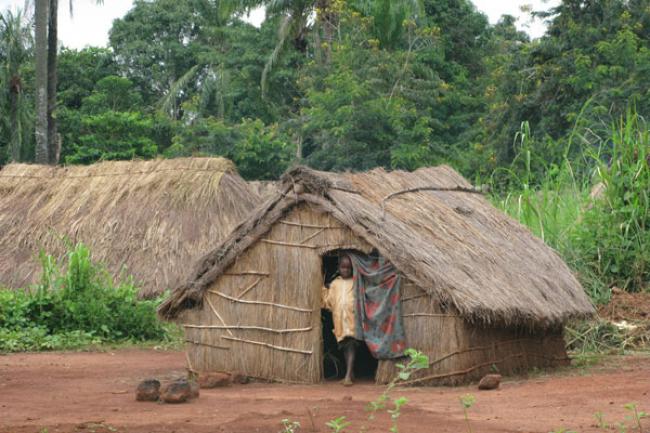22 Nov 2014, 07:05 am Print

A press briefing in Geneva earlier on Friday highlighted that on 17 and 18 November, attacks between communities in Zémio, a town in the south-east of the Central African Republic (CAR), in the province of Haut Mbomou, had left some 80 per cent of the 16,000 inhabitants displaced and in search of protection.
Jens Laerke, spokesperson for the UN Office for the Coordination of Humanitarian Affairs (OCHA), told reporters that according to local authorities, at least 10 people had been injured, two of them severely, including the local imam.
The situation remains highly tense and armed men with guns, machetes, knives, bows and arrows are present in the town, the spokesperson noted.
The crisis in Zémio, which has a mixed community of both Christians and Muslims, began after the killing of a member of one of the communities on 5 November, Laerke reported. The killing triggered retaliation attacks, including the burning of more than 30 houses in the villages of Barh and Bogou, which are located some 40-45 kilometres from Zémio. Grenades and automatic weapons were used in the attacks, the spokesperson said.
It was the first major inter-community incident in the region since the crisis in CAR began in December 2012. The town of Zémio had not previously been affected by inter-communal violence, the spokesperson noted.
On Wednesday, a UN joint rapid assessment mission, with the participation of the UN Children’s Fund (UNICEF) and the UN Refugee Agency (UNHCR), found people in need of shelter, drinking water, health services and proper sanitation, Laerke said.
Responding to questions, Laerke said that what had happened came as a surprise to people working in the area, as it had not previously been affected by the violence seen in other parts of the country.
Thousands of people are estimated to have been killed in CAR as a result of a conflict that erupted when mainly Muslim Séléka rebels launched attacks in December 2012. The violence has since taken on increasingly sectarian overtones.
IDP camp in Zémio, Haut Mbomou, Central African Republic (CAR). Photo: OCHA/Lauren Paletta
- UK: Media regulator Ofcom imposes first £1mn Online Safety Act fine against porn site provider
- War stole their classrooms: 4.6 million Ukrainian children face learning barriers in year four of Russian invasion
- Terrifying Reality: 600 Million Children Exposed to Home Violence Worldwide, alerts UNICEF
- Schools in fear: Abduction of over 200 students triggers panic across Nigeria
- UNICEF'S new report shows 8 million teens in world's wealthiest countries functionally illiterate





-1763561110.jpg)
